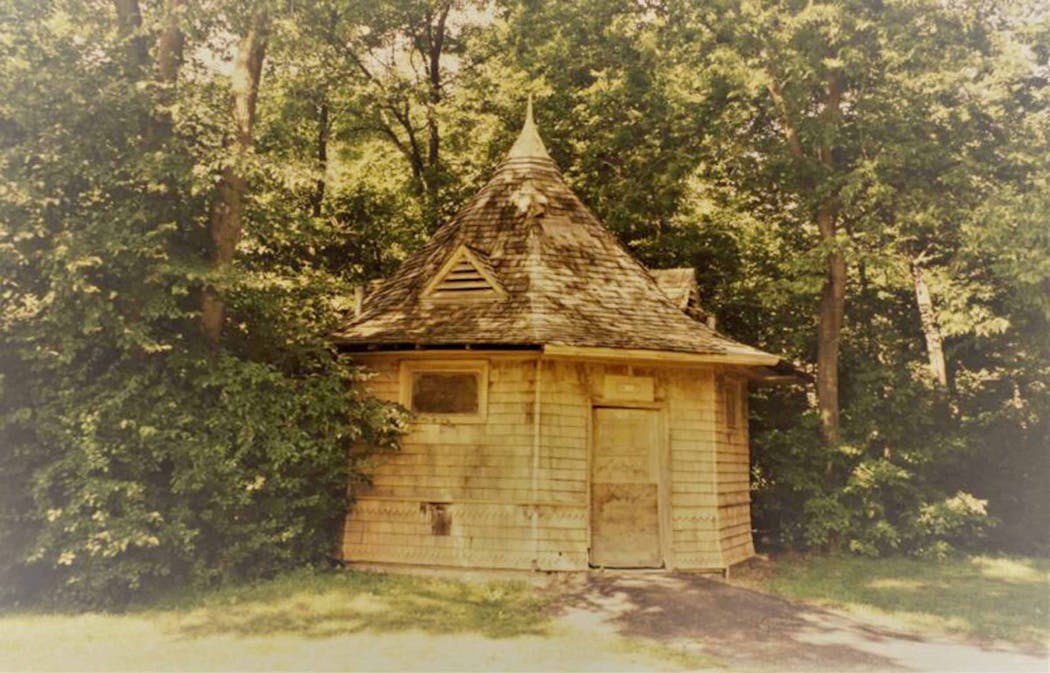Before crowds began ending summer concerts with standing ovations, before moviegoers flocked to the lakeside spot, even before it was built, the Lake Harriet Band Shell got a round of applause.
When Minnesota architect Milo Thompson revealed the plan for the revamped band shell in 1986, residents responded with clapping and cheers.
Thompson, now 86, is still surprised by how the city has embraced the band shell over the years.
"I never expected, really, that it would become the icon that it is," Thompson said. "Of all the work that I've done in my career, which is considerable, it's the one project that people seem to know. I'm always surprised."
Some people are surprised to learn that the band shell, despite its traditional design, is just a few decades old. While it has a vaguely Victorian look, it's very much a part of the present. The band shell is considered one of the must-see sites in the city and regularly hosts concerts, movie screenings and church services.
Even when its stage is empty, the band shell is a magnet, drawing dog walkers, picnickers and joggers to congregate at the striking structure on the shores of Lake Harriet.
That's all a part of the design. From the beginning, the band shell was intended to be for the community.
"It will belong to its neighborhood," wrote former Star Tribune architecture critic Linda Mack in a column reviewing Thompson's plans.
"If Thompson had not commanded both a deep understanding of historic styles and an ability to make beautiful, coherent designs, the new concert building could have been only a poor imitation of the past," Mack wrote in 1986.
With a grand curved roof and a wall of windows facing the lake, Thompson said, the "nostalgic design" appealed to people when it was built and has managed to maintain that widespread appeal.
But Thompson didn't dictate the look of the structure all on his own: Minneapolis residents also were involved.
The Minneapolis Park and Recreation Board appointed a few dozen people from the surrounding neighborhoods to be a part of a citizen committee. One member was Peter Sussman, who had been an architecture student of Thompson's at the University of Minnesota and had grown up near Lake Harriet.
Sussman remembers how excited committee members were to have a hand in helping to form a bigger and better band shell.
"It really got pretty crazy; we didn't want to stop talking," said Sussman.
While the committee weighed in on traffic congestion and the number of parking spaces, it strongly favored a design that would reflect the area's history.
"There were no proponents for a contemporary structure," Sussman said.
A fiery history
The band shell we know and love wasn't the first one built on or near the current site. In fact, there were four previous pavilions, most of which met untimely ends.
The band shell Thompson designed replaced an underwhelming pavilion built by the Park Board in 1927. The building, which was supposed to be temporary, stood for almost six decades.
Before that, famed Minneapolis architect Harry Wild Jones built two structures, one in 1904, one in 1891. One succumbed to fire, the other to a storm. The original pavilion was built in 1888 by the Twin City Rapid Transit Co.
Only one of the early structures survived: the restrooms designed by Jones. Built in 1892 to complement the second pavilion he designed, the timber-framed, pagoda-style structure became the inspiration for the current band shell.
"It's a striking design," said Jane Gregerson, a longtime neighborhood resident who helped to restore the historic Lake Harriet restrooms in the late 1990s.
"I think it's a nod to the period when people were really attending band concerts. You think of people in boaters and women with parasols and long skirts, going to the lake and appreciating it."
New traditions
While it may have an old-style look, the band shell has been able to adapt to new traditions.
It's become one of the most popular concert locations in the Twin Cities, welcoming local musicians, bands, orchestras and ensembles.
"It's still become a tradition," said Erica Chua, the band shell's events coordinator.
It's also been embraced by the community at large.
More than 3,500 people (including Gov. Rudy Perpich) showed up for the band shell's dedication in 1986. When the building was in need of repairs in 2004, volunteers rallied to repair it. (And in a move that sparked controversy, repainted it from a light blue-gray color to the current brown-tan one.)
Terry Walsh wasn't always a fan of the current band shell.
"I liked the simplicity of the old one," said Walsh, who used to ride his bike around Lake Harriet as a kid.
But now that he's adult and a member of the Belfast Cowboys band, he's changed his tune.
"As years went on, and then finally getting to play there was just, man. It sure is a place near and dear to my heart now," he said. So much so that he even wrote a song about it.
Every time his band plays at Lake Harriet, Walsh said, it feels like a "life reunion," a gathering with friends and family.
Even though he no longer visits the band shell, Thompson sometimes gets selfies of his grandchildren standing next to it. But he doesn't think much about his legacy.
"I'll leave it to others to talk about some of those things," he said.

A Minnesota field guide to snow shovels: Which one's best?
Sign up for Star Tribune newsletters



